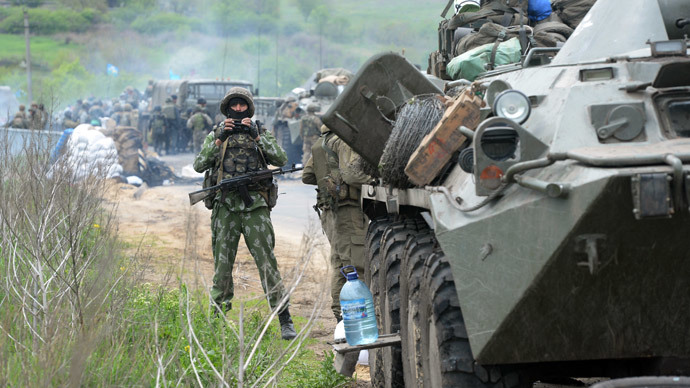An 11-year old Russian girl, who has been staying in Slavyansk in eastern Ukraine without her parents since February, a major hotspot in the military stand-off between Kiev and pro-federalization forces, was brought back home after a special operation.
“It took a month to get the operation ready and two days to carry it out,” Pavel Astakhov, Russia’s ombudsman for children’s rights who worked in cooperation with the Foreign Ministry, to secure the girl’s return, told RIA Novosti.
The girl, Anya Vasilenko, was sent by her parents to spend some time with her aunt in Slavyansk in the Donetsk region in February, while her family was moving from Primorsky Kray, in the Far East, to Belgorod situated in a southwestern region, bordering Ukraine.
When tension between Kiev and the eastern regions started to grow, Anya’s parents tried to get their daughter back. They were, however, denied entry to Ukraine, so they decided to seek help at the ombudsman’s office.
Anya’s father, who used to serve in the Russian military, said he
was ready to do anything, even cross the border illegally.

Pavel Astakhov advised the man against radical steps, as there was a risk of him “getting into the hands of the [Ukrainian] National Guard, who promise a bounty of $10,000 for each Russian soldier.”
The conflict between the government and the pro-federalization movement worsened in mid-April, when several cities in the Lugansk and Donetsk regions took control of local administrations. Kiev responded with a military crackdown on protesters. Anya eventually found herself in a place where some of the fiercest fighting has taken place.
During the last month and a half, Anya and her relatives didn’t even go out, as they could here gunshots and blasts every day. Only the men went outside to get food.
“It was of course scary there, I had to hide in the
basement,” the girl told an Itar-Tass correspondent on her
return.
Anya was eventually spirited out of Slavyansk in a car with a
diplomatic number plate. It took her and her two cousins through
four check-points up to the border with Russia.
Russian diplomats managed to arrange things in a way that Anna’s
crossing the border was an absolutely legal one. Pavel Astakhov
said the Ukrainians checked her documents at the border for about
an hour, but eventually let the girl out. 
“In this way, Russian authorities not only helped the child to be reunited with her family, but also tried once again to draw the attention of the international community to the obligations of Ukrainian authorities to ensure the safety of peaceful citizens, to protect lives and to organize safe corridors for children, women and the elderly, who want to leave zones of military conflit,” Astakhov said.
The children’s rights ombudsman said he was going to address the UN and the European Council, asking the organizations to take note of Ukraine’s failure to comply with the Geneva Convention for the Protection of Civilian Persons in Time of War.

